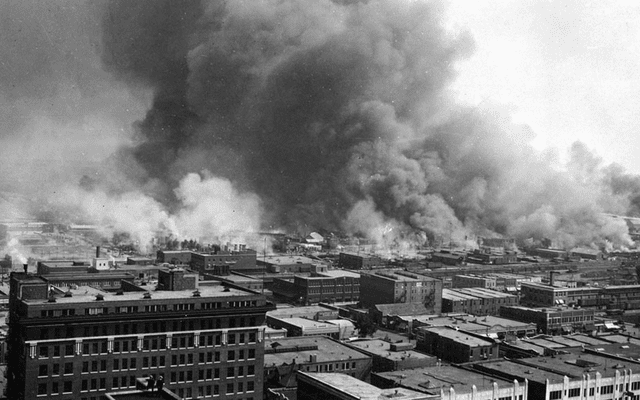by Ayan Ajanaku —
Being extra-measured with what we say in the presence of White people is about the blackest tool in the Black-survival tool belt. Even with White people we might regard as friends and when it relates to the most inconsequential subjects, we still tend to act like we’re “having company over”. Some things are just easier left unsaid.

Imagine explaining to a new White friend in the seventh grade what a relaxer is and that your mom plans to let you have one after you get your first period. My mom had recently shared that news and for some inexplicable reason my pre-teen brain decided to venture down that relaxer rabbit hole with my friend. My friend naturally looked at me like she had just met Alf. And it was then and there that I learned I gots to be more careful.
The things we usually decide to talk about – or not talk about it – when White people are present are usually rooted in how we assess them on either our sounds-ghetto or sounds-mean meter. We learn how to do this when we’re young and from there the practice of carefully curating the information we share and don’t share begins.
The other day I was on some passive aggressive (trip) and decided to ask my (White) roommate a question I already knew the answer to, “Have you ever heard of Juneteenth?”
My roommate (looking at me like she’s trying to decipher what language I’m using): “June what?”
“No,” I said politely, shooting her the best version of my that’s OK-look. “Well, it’s a celebration of the abolition of slavery. I was just curious if you knew what it was because Trump….rally in Tulsa (OK)…race massacre…”
I went down that road as opposed to: “Have you ever considered why the f… you don’t know what Juneteenth is and, to make matters worse, have actually celebrated St. Patrick’s Day and Cinco de Mayo more than you’ve celebrated the abolition of slavery in the country you actually live in?”
But, there’s an extra-special, too-close-to-call fine line between being cruel with the truth and – as Kat Williams calls it – being on “the cusp of coonery.” I was trying to find and maintain my balance on that line with her that day.
One thing that’s been promising over the past several years though is that we’ve given way to more unfiltered expression that is graciously more akin to mockery than outright cruelty. That may be due to just plain old fatigue about where to draw that fine-ass line. Hitting the apex recently with what has been a virtual motherload of mockery of White people, in an effort mostly to mitigate the pain of recent events.
Giving them that honest mirror on what they need to do IS progress or at minimum amusing, but are we ready to talk freely yet about the work we also need to do? Are we examining the reasons we hide “the work” we’re doing? More importantly, are we even doing work?
I was 12 when my family moved to Tulsa. If the 1921 Tulsa Race Massacre was mentioned in our school books it was a blip on the radar, a half-page relative historical non-issue. Only in the last year did it become a curriculum requirement for Oklahoma schools.
My mother and I simultaneously learned about the massacre in Jack & Jill of America, Inc. (her attempt at “blackanizing” us in an all-white environment) when I was a teen and she a 45-year-old adult who had lived nearly her whole life in Oklahoma. Her parents were children during the Tulsa massacre, but she says they never spoke to her about it.
In my entire childhood and adult life, I had never imagined why.
None of my mother’s brothers and sisters (eight of them) from a small black town called Boley, OK, 60 miles from Tulsa, ever moved to Tulsa. My family was only in Tulsa because my dad’s job transferred him/us there from Lake Charles, LA. I never ventured to learn about the history of blacks in Tulsa until a few years ago, when I put two and two together and wondered why my extensive maternal family so rooted in Oklahoma and so close to its second-largest city had NO members there.
Let me be clear, while I was comfortable throwing Juneteenth in my roommate’s face, there are no shortage of African Americans who don’t celebrate Juneteenth. And hell no, it’s no less right that they don’t!
White people stood just as much to gain from becoming human and abolishing slavery as we did. Although to the untrained ignorant eye, which is, unfortunately, the average eye, it could look like “we freed ya’ll, now you take it from here.”
The bearers of such eyes – the oblivious “Karens” of the world that we mock to keep from crying – can keep you up at night, if you let them.
A Black friend once told me that she doesn’t talk to her White friends about “the work” she does on herself to shake loose of the black-white, less than-better than dynamic. She fears that doing so might free up “the Karens” with their diatribe about pulling herself up by those good old boy bootstraps.
I thought to myself: “You think a person that REALLY wants to put in work to help solve a social problem is going to stop working because they see you working too?”
A person that WANTED to be involved never stopped being involved in anything because they saw other people being involved. If anything, they would be stimulated to pick up their pace.
Nevertheless, it’s true that there are White people and Black people that are simply comfortable with the “40 acres and a mule” they’ve carved out for themselves. They don’t see any room for personal growth.
Let’s just be OK with them for now. They aren’t the target market here. Let ’em go.
Who is the target market though? Is it you?
Learning how to be happy with folks not being ready is the hardest part of the movement process which IS a personal growth process. You can’t make anyone be ready. You can ask the questions. You can’t make them want to TRULY know the answers. You move on and, perhaps, keep posing the questions, periodically.
A must-do step though is to stimulate happiness within first. Anger is a powerful tool for stimulating action and growth, but anger isn’t a sustaining energy. Ain’t nobody trying to stay mad. Life is too short for that.
We are able to sustain energy when we know how to fuel ourselves by maintaining internal balance with processes like meditation for example. From there it’s easy to gather competence and clarity about the specific work needed. Like perhaps picking up a history book and/or talking to older family members. Or just being more reflective about our compulsions and language. At that level of freedom, we no longer have to carry our story along like top-secret baggage.
It’s only now that I’m able to understand that what my adolescent brain thought was a relaxer rabbit hole was really something of an underground railroad to freedom. Because at the heart of it, freedom is really just being able to tell your story freely.
(Former Memphian and blogger Ayan Ajanaku lives in Seville, Spain, where she teaches English online.)




